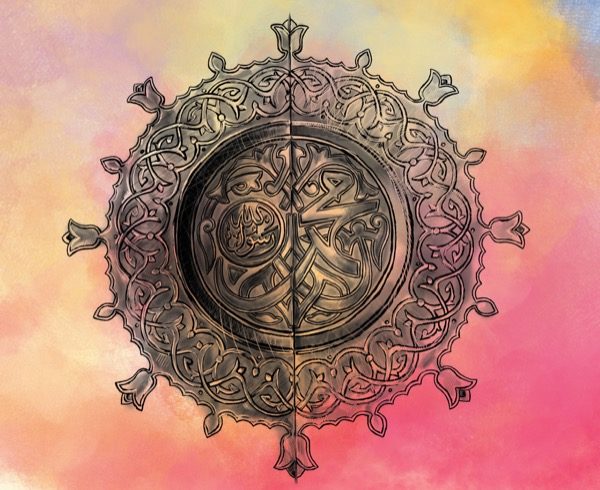
© Shutterstock
Tariq Mahmood, Canada
It is said our anthropological ancestors were forced to fast for days at a time as they hunted their next meal. The great mathematician Pythagoras would also require his pupils to fast in Ancient Alexandria, and Moses (as) himself fasted for 40 days in preparation for the Ten Commandments.[1,2]
Fasting holds its important rank amongst the Five Pillars of Islam alongside the proclamation of faith, prayer, Zakat (alsmgiving for the distribution of wealth) and pilgrimage to Makkah. Perhaps due to this, one associates fasting as synonymous with the month of Ramadan; however, Ramadan is much more than fasting.
The crux of Ramadan is to attempt to purify the soul and attain nearness to God Almighty, as the Holy Qur’an proclaims:
‘O ye who believe! fasting is prescribed for you, as it was prescribed for those before you, so that you may become righteous.’ [3]
To achieve such a gargantuan task is not just the burden of fasting; other deeds must be employed to reach a prosperous outcome. Just as an army consists of different ranks, so too does Ramadan send forth its different means to achieve closeness to God, and though leadership is critical in war, troops are needed to fight the battle on the ground.
In the same manner, fasting holds its rank in the battle against our own evil, but the entire paradigm of Ramadan proves essential. What are these rules, and what function do they serve in the completion of a successful Ramadan?
Prayer
Though regular prayer holds its lofty prestige in Islam, the month of Ramadan demands a substantial increase in prayer. During the month of Ramadan, the mosque is often a sight to behold. Many Muslims go out of their way to change their schedules; whether it’s their work hours or house chores, they arrive at the mosque for prayers with greater zeal.
The month of Ramadan also brings with it the Muslim prayer tarawih, an optional prayer in which long portions of the Qur’an are read after the last prayer of the day. Muslims also strive to wake up in the early hours of the morning to offer optional prayers known as tahajjud.
All this culminates in an effort to fulfill the rights of Allah, to Whom humanity owes its sincerest gratitude and appreciation.
Charity
A valuable principle of Ramadan is the offering of charity. Islam generally places heavy emphasis on charity. The Holy Qur’an declares a prerequisite for righteousness:
‘Never shall you attain to righteousness unless you spend out of that which you love; and whatever you spend, Allah surely knows it well.’[4]
The Islamic concept of charity serves two purposes. Firstly, it acts as a means for the remission of sin by tipping the scales in favour of good. Secondly, it seeks to create a harmonious society in which a spirit of selflessness is fostered.
Ramadan requires a growth in one’s charity. Islam’s stance on one who cannot fast is worthy of note, as Allah the Almighty states:
‘And for those who are able to fast only with great difficulty is an expiation—the feeding of a poor man.’[5]
If one cannot fast, charity is the means by which they can attain reward. This also speaks to a great wisdom of Ramadan; that is, to provide for those less fortunate. This teaching was personified in the actions of the Holy Prophet (sa). His companions used to say that he would give charity like a swift wind in Ramadan.[6]
The Holy Prophet (sa) was once asked by his companions as to the best form of charity. He beautifully responded, ‘Charity in the month of Ramadan.’ [7] In another narration, the Prophet of Islam (sa) practised what he preached. His companion testified to the fact that the Holy Prophet (sa) gave charity to every single beggar during Ramadan.[8]
Additionally, the month of Ramadan ends in one final act of charity: every Muslim is required to give a little wealth so that those who are poor and needy but celebrate Eid do not go hungry. This magnificent principle creates a unique equilibrium: as some go hungry others are fed, but all are happier with what they have earned.
Anger and Dispute
It is the eternal struggle of humanity to rid itself of the plight of negativity. Anger rears its ugly head to divide the masses and primes the soul towards sin. Jealousy, backbiting, greed, and other sins root themselves in the habit of becoming angry.
Commenting on the oxymoronic nature of anger, Mark Twain, known as ‘the father of American literature’ once remarked ‘Anger is an acid that can do more harm to the vessel in which it is stored than to anything on which it is poured.’ This is a universally accepted rule.
Thus, humans embark upon training and regiments of different varieties to curb their negativity. Some seek professional help, while others pour their negative emotions into sports activities or hobbies. Islam too offers a 30-day program to help curb one’s anger, and learn to control it.
The Islamic concept of fasting doesn’t just require one to refrain from food, drink, and sexual activity in the course of the fast; rather, it commands the Muslim to strive to become better. Regarding fasting, the Holy Prophet (sa) once remarked:
‘Fasting is a shield; when one of you is fasting, he should neither behave in an obscene manner nor foolishly. If a man fights or abuses him, he should say: I am fasting, I am fasting.’[9]
Thus, the month of Ramadan ushers in a time where anger is to be controlled. The founder of the Ahmadiyya Muslim Community, Hazrat Mirza Ghulam Ahmad (as), elucidates the truth about anger:
‘To refrain from anger is the ultimate and most arduous stage for many wise men and pious individuals. Arrogance and pride are borne out of anger. One only becomes angry when he considers himself to be superior to the other. I do not wish for the members of my community to consider others to be superior or inferior, or to look upon others with conceit and disdain.’[10]
Thus, anger at its undue times leads to immorality, which consequently leads to a bitter society. Conflict resolution, however, is championed in the month of Ramadan. The sanctity of the fast demands that one should not make obscene or inappropriate remarks, nor incite disputes. Furthermore, in the case of a dispute in process, Muslims are encouraged to tell the other person that they are fasting and leave the discussion.
Conclusion
When eating food, one tends to forget all the hard work that culminated into forming such a meal. The wheat for bread is harvested by a farmer, then baked by some, delivered by others, and purchased by the consumer. The same goes for progress. We must not forget the intricate system Allah the Almighty has laid out in order for humanity to progress. Indeed, it is by taking one step at a time that one reaches their goals.
Thus, among the tapestry of faith, fasting is a crucial part of the design. Once the different components of Ramadan are arranged together, then a refined product will emerge. Prayer, charity, and the inner fight against negativity will all crescendo into a symphony of divine harmony. One in which humanity is happier, for it achieves the wisdom and experience to be happy. All this is the essence of the holy month of Ramadan.
About the Author: Tariq Mahmood is a graduate of the Ahmadiyya Institute of Languages and Theology in Canada and serves as Secretary of The Existence Project Team for The Review of Religions.
ENDNOTES
1. Alimentarium, “Voluntary Fasting,” https://www.alimentarium. org/en/fact-sheet/voluntaryfasting#:~:text=It%20was%20also%20 a%20means,prescribed%20fasting%20 to%20his%20pupils.
2. The Bible, Exodus 34:28.
3. The Holy Qur’an, 2:184.
4. The Holy Qur’an, 3:93.
5. The Holy Qur’an, 2:185.
6. Sahih Muslim, The Book of Virtues, Chapter: His Generosity, Hadith 2308a.
7. Jami’ al-Tirmidhi, The Book on Zakat, Chapter: What Has Been Related About the Virtue of Charity, Hadith 663.
8. Mishkat al-Masabih, The Book on Fasting, Chapter 3, Hadith 1966.
9. Sunan Abi Dawud, The Book of Fasting, Chapter on a Fasting Person Backbiting, Hadith 2263. 10. Friday Sermon, Delivered May 18, 218, https://www.alislam.org/friday-sermon/ printer-friendly-summary-2018-05-18.html
- Friday Sermon, Delivered May 18, 218, https://www.alislam.org/friday-sermon/printer-friendly-summary-2018-05-18.html




Add Comment